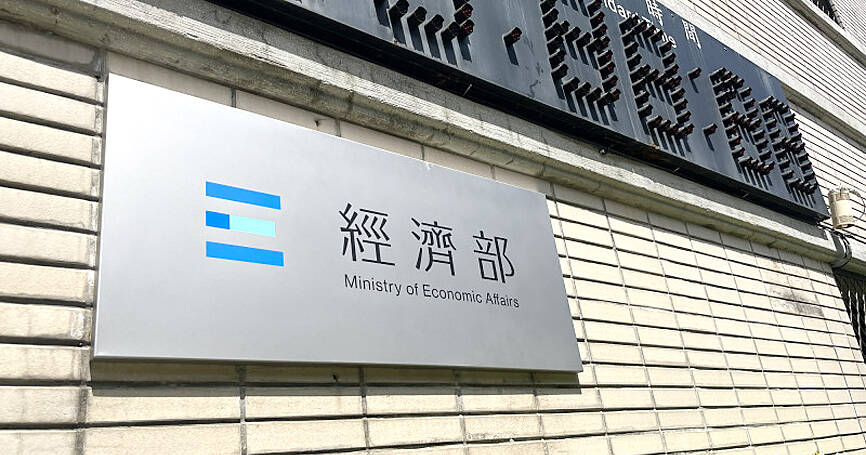Foreign direct investment (FDI), excluding that from China, increased 78.34 percent year-on-year to US$1.69 billion in the first two months of this year, the Ministry of Economic Affairs said yesterday.
Taiwan's FDI calculations were based on foreign firms’ investment applications — to incorporate local subsidiaries, establish joint ventures, inject cash into local units or acquire domestic companies — approved by the Department of Investment Review.
The ministry attributed the 78.34 percent annual increase to substantial investments by foreign offshore wind energy developers.

Photo: Liao Chia-ning, Taipei Times
During the first two months, the department approved Danish wind energy developer Copenhagen Infrastructure Partners’ application to increase the capital of CI Fengmiao Ltd (哥本哈根基礎設施渢妙股份) by NT$22.08 billion (US$668.99 million) to operate offshore wind farms off the coast of Taichung, the ministry said.
The department also approved an application from Orsted Wind Power TW Holding to invest an additional NT$3.59 billion into its local unit to finance its wind farm operations off the coast of Changhua County, the ministry said.
Additionally, MEMC Korea Co, a subsidiary of GlobalWafers Co (環球晶圓), gained permission to launch a Taiwanese unit for NT$6.57 billion, it said.
As for approved investment from China, aggregate value in the first two months jumped 2,746 percent from a year earlier to US$96.28 million, which the ministry attributed mainly to Hong Kong-based Garuda International Ltd (鵬鼎國際) gaining approval to raise investment for its Taiwanese unit, Garuda Technology Co (鵬鼎科技), by NT$3 billion.
Garuda Technology’s business is focused on the production of flexible printed circuit boards and the provision of surface-mount technology services, the ministry said.
Approved outbound investment from Taiwanese firms, excluding that to China, plunged 70.73 percent year-on-year to US$1.16 billion in the first two months, while China investments dropped 61.6 percent to US$223.95 million, it said.

RECYCLE: Taiwan would aid manufacturers in refining rare earths from discarded appliances, which would fit the nation’s circular economy goals, minister Kung said Taiwan would work with the US and Japan on a proposed cooperation initiative in response to Beijing’s newly announced rare earth export curbs, Minister of Economic Affairs Kung Ming-hsin (龔明鑫) said yesterday. China last week announced new restrictions requiring companies to obtain export licenses if their products contain more than 0.1 percent of Chinese-origin rare earths by value. US Secretary of the Treasury Scott Bessent on Wednesday responded by saying that Beijing was “unreliable” in its rare earths exports, adding that the US would “neither be commanded, nor controlled” by China, several media outlets reported. Japanese Minister of Finance Katsunobu Kato yesterday also

Taiwan’s rapidly aging population is fueling a sharp increase in homes occupied solely by elderly people, a trend that is reshaping the nation’s housing market and social fabric, real-estate brokers said yesterday. About 850,000 residences were occupied by elderly people in the first quarter, including 655,000 that housed only one resident, the Ministry of the Interior said. The figures have nearly doubled from a decade earlier, Great Home Realty Co (大家房屋) said, as people aged 65 and older now make up 20.8 percent of the population. “The so-called silver tsunami represents more than just a demographic shift — it could fundamentally redefine the

China Airlines Ltd (CAL, 中華航空) said it expects peak season effects in the fourth quarter to continue to boost demand for passenger flights and cargo services, after reporting its second-highest-ever September sales on Monday. The carrier said it posted NT$15.88 billion (US$517 million) in consolidated sales last month, trailing only September last year’s NT$16.01 billion. Last month, CAL generated NT$8.77 billion from its passenger flights and NT$5.37 billion from cargo services, it said. In the first nine months of this year, the carrier posted NT$154.93 billion in cumulative sales, up 2.62 percent from a year earlier, marking the second-highest level for the January-September

Businesses across the global semiconductor supply chain are bracing themselves for disruptions from an escalating trade war, after China imposed curbs on rare earth mineral exports and the US responded with additional tariffs and restrictions on software sales to the Asian nation. China’s restrictions, the most targeted move yet to limit supplies of rare earth materials, represent the first major attempt by Beijing to exercise long-arm jurisdiction over foreign companies to target the semiconductor industry, threatening to stall the chips powering the artificial intelligence (AI) boom. They prompted US President Donald Trump on Friday to announce that he would impose an additional